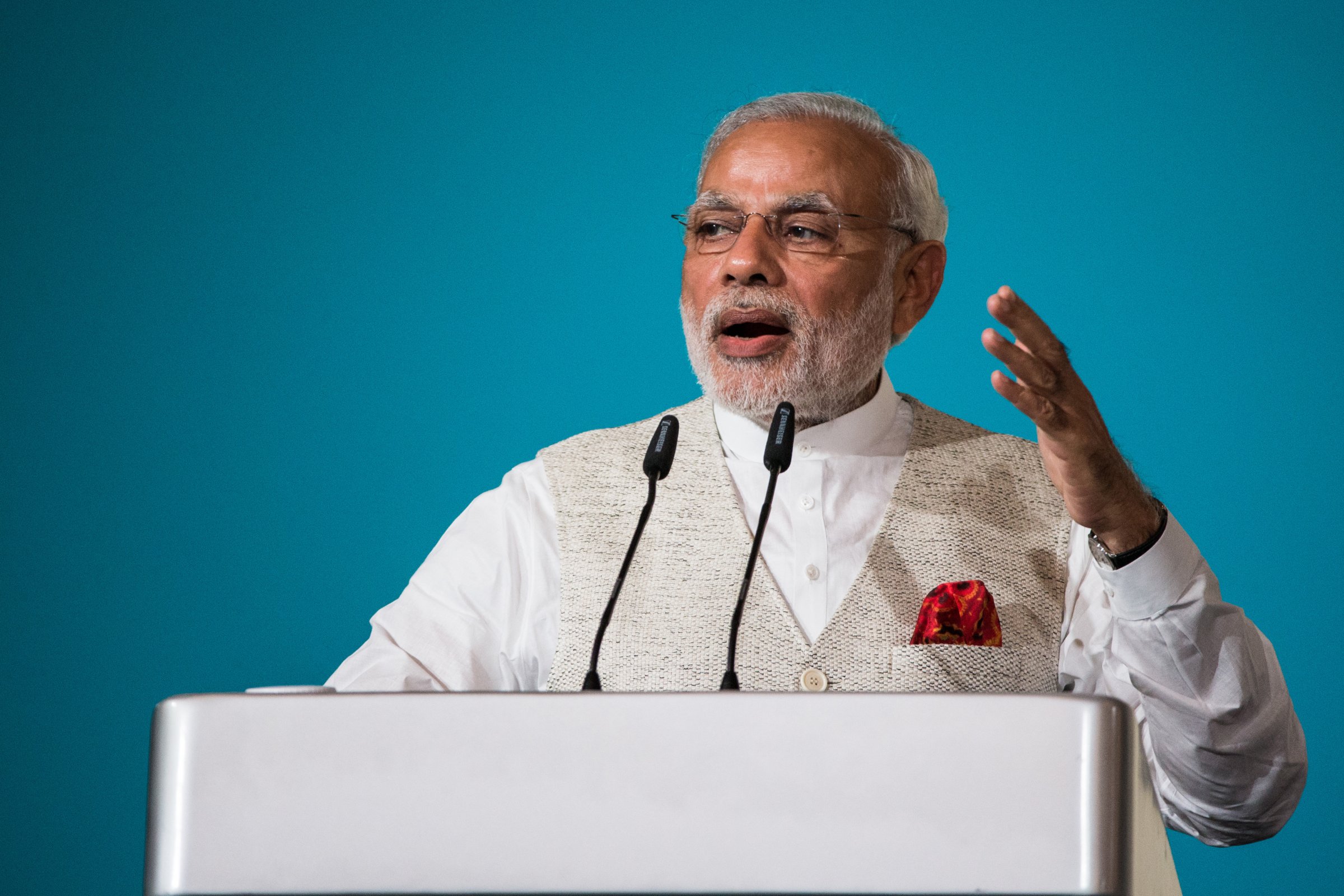
Indian Prime Minister Narendra Modi is set to spend billions of dollars on state-of-the-art Russian weaponry, breathing new life into an old Cold War relationship and hitting the prospects for U.S. defense companies.
Modi arrives in Moscow on an official visit Wednesday and is expected to sign what could be his country’s biggest defense deal with Russia since 2001, according to Bloomberg.
The centerpiece of the deal is expected to be the purchase of the S-400 long-range air defense system. That deal alone, approved by the Indian cabinet last week, will cost anything between $4.5 billion and $6 billion, according to various media reports.
India feels it needs the system to neutralize the strategic threat from its traditional rivals in the region, China and Pakistan.
Other prospective deals include a possible $1 billion contract to jointly build a light military cargo helicopter, which would add another string to Modi’s “Make in India” drive to encourage high-value-added manufacturing, and naval orders for Russian-built frigates and a nuclear-powered attack submarine.
In all, the deals are likely to restore Russia to being India’s top arms supplier, a position it has yielded to the U.S. over the last three years. But it still only accounts for a part of the $150 billion upgrade of India’s military that Modi is planning.
It’s the S-400 system deal that will grab the most attention. Its ability to shoot down both planes and missiles at a range of up to 250 miles enables it to tip the strategic balance in many of the region’s potential hotspots. Russia has already agreed to sell the system to China, and some in Moscow have pressed for it to be sold to Iran, too, giving the country’s nuclear installations much better protection against possible U.S. or Israeli airstrikes.
Russia is already deploying the S-400 to telling effect in Syria, making it harder for U.S. and allied aircraft to conduct bombing raids against the fighters of the so-called Islamic State.
Although the U.S. and Russia have notionally agreed to work together to degrade IS, their airstrikes aren’t coordinated. With tensions running high since the shooting down of a Russian warplane by NATO member Turkey last month, the risks of traditional rivalries causing an unintentional clash appear to have risen.
More Must-Reads from TIME
- Where Trump 2.0 Will Differ From 1.0
- How Elon Musk Became a Kingmaker
- The Power—And Limits—of Peer Support
- The 100 Must-Read Books of 2024
- Column: If Optimism Feels Ridiculous Now, Try Hope
- The Future of Climate Action Is Trade Policy
- FX’s Say Nothing Is the Must-Watch Political Thriller of 2024
- Merle Bombardieri Is Helping People Make the Baby Decision
Contact us at letters@time.com